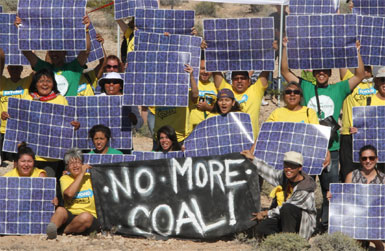Last year, the US Department of Labor began giving out grants to help coal mining workers transition to clean economy jobs, and now that program is being expanded.
It started with $11.3 million in a National Emergency Grant to fund job training and job search assistance for people laid off from Kentucky mines.
At the same time, Governor Beshear’s (D-KY) Shaping our Appalachian Region (SOAR) program began investing in high-speed broadband, transportation infrastructure, energy efficiency and renewables to re-orient areas hard hit by the decline of the coal industry.
At this week’s SOAR conference, Labor Secretary Tom Perez announced another $35 million in grants under a dedicated regional program, Partnerships for Opportunity and Workforce and Economic Revitalization (POWER) initiative.
It is available to all workers impacted by the declining coal industry – coal miners, people who work at coal-fired power plants, and those laid off from coal supply chain jobs, such as manufacturing or transportation.

Coal jobs have been trending down for decades, having nothing to do with EPA regulations that affect coal, such as cutting mercury and carbon emissions. Aging plants with outdated technology have closed and the industry has moved to mechanized mountaintop mining, which requires fewer workers by the thousands. Add in cheap natural gas, a rise in energy efficiency and there’s less demand for coal.
The White Fact sheet on POWER puts it this way:
"The US is undergoing a rapid energy transformation, particularly in the power sector. Booming natural gas production, declining costs for renewable energy, increases in energy efficiency, flattening electricity demand, and updated clean air standards are changing the way electricity is generated and used across the country.
"These trends are producing cleaner air and healthier communities, and spurring new jobs and industries. At the same time, they are impacting workers and communities who have relied on the coal industry as a source of good jobs and economic prosperity, particularly in Appalachia, where competition with other coal basins provides additional pressure."
Will GOP leadership even acknowledge this or just keep yelling, War on Coal? I think we know the answer.
By the way, no one called it a "War on Typewritters" when the Internet came along and you can be sure thousands of people worked in that industry. We saw a similar conflict in Oregon when loggers were afraid of job loss because clearcutting our old growth forests would no longer be allowed. In that case, increased tourism created a healthier economy than logging ever did.
POWER Initiative
POWER will be a coordinated effort among several federal agencies with the goal of effectively aligning, leveraging, and targeting a range of federal economic and workforce development programs and resources to assist communities negatively impacted by changes in the coal industry and power sector, says the White House.
Grants will help communities develop strategic plans that chart their economic future, and execute coordinated economic and workforce development activities based on those plans.
The goal is to: diversify economies; create jobs in new or existing industries; attract new sources of job-creating investment; and provide a range of workforce services and skills training, including work-based learning opportunities, resulting in industry-recognized credentials for high-quality, in-demand jobs.
These efforts in 2015 will lay the groundwork for a multi-year initiative. President Obama included $55 million for the program in his 2016 budget.
Learn more at the POWER website:
